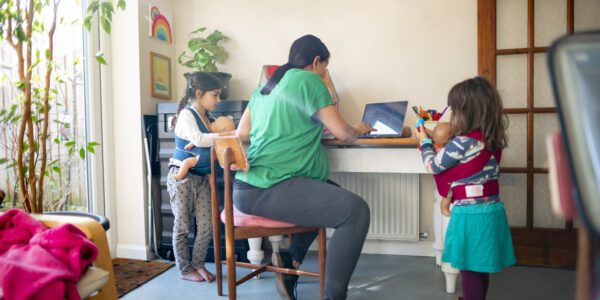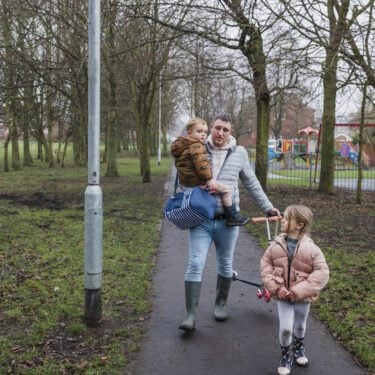-
Dr Naomi FinchUniversity of York
-
Professor Katharina BaderUniversity of York
-
Ivana La ValleResearch Consultant
Project overview
This project will investigate how hybrid work impacts childcare arrangements.
Why this project is important
Since the pandemic, hybrid working has increased, promising improved work-life balance and wellbeing of parents because of flexibility benefits. However, recent evidence suggests that homeworking can also lead to work-life conflict, low wellbeing, and ill-health. Negative effects are more pronounced for mothers than fathers, explained in part by mothers continuing to do a higher share of childcare than fathers.
While formal childcare has re-opened, there is some evidence of a decline in take up of formal childcare in recent years, partly driven by an increase in hybrid work. This suggests parents are doing more childcare themselves while working, potentially reproducing gender inequalities.
What it will involve
The research team aim to provide evidence on the reduced use of formal childcare by answering the following questions:
- What are the patterns of hybrid work and parental/ extra-parental childcare arrangements? How have they changed over time?
- Which patterns of hybrid work and childcare are more “effective” in improving work-life balance, health, and wellbeing for both mothers and fathers, in different socio-economic circumstances?
- How does childcare policy and local childcare context affect these patterns?
- What are the childcare preferences of hybrid working parents, and how do they make childcare decisions? In what circumstances, and why, do parents cover childcare themselves? How do they care while working?
- How can national and regional policy, employers, and childcare providers support effective childcare that increases positive equitable outcomes for hybrid working parents?
The research will be completed in four stages:
- Conducting a literature review and semi-structured interviews to identify key issues in hybrid work and childcare arrangements.
- Analysing secondary data to understand patterns and outcomes of hybrid work-care arrangements.
- Developing and implementing a new survey to address gaps in existing data.
- Conducting qualitative interviews to explore parental experiences and influences on hybrid work-childcare arrangements.
How it will make a difference
Findings will be directly shared with key stakeholders, including parents, childcare providers, employers, local authorities, regional combined authorities, and national policymakers. An updated employer toolkit will be co-produced with Working Families on best practice in supporting hybrid employees, and a toolkit for childcare providers will be co-produced with Coram Family and Childcare on how to best offer services to hybrid workers.













































